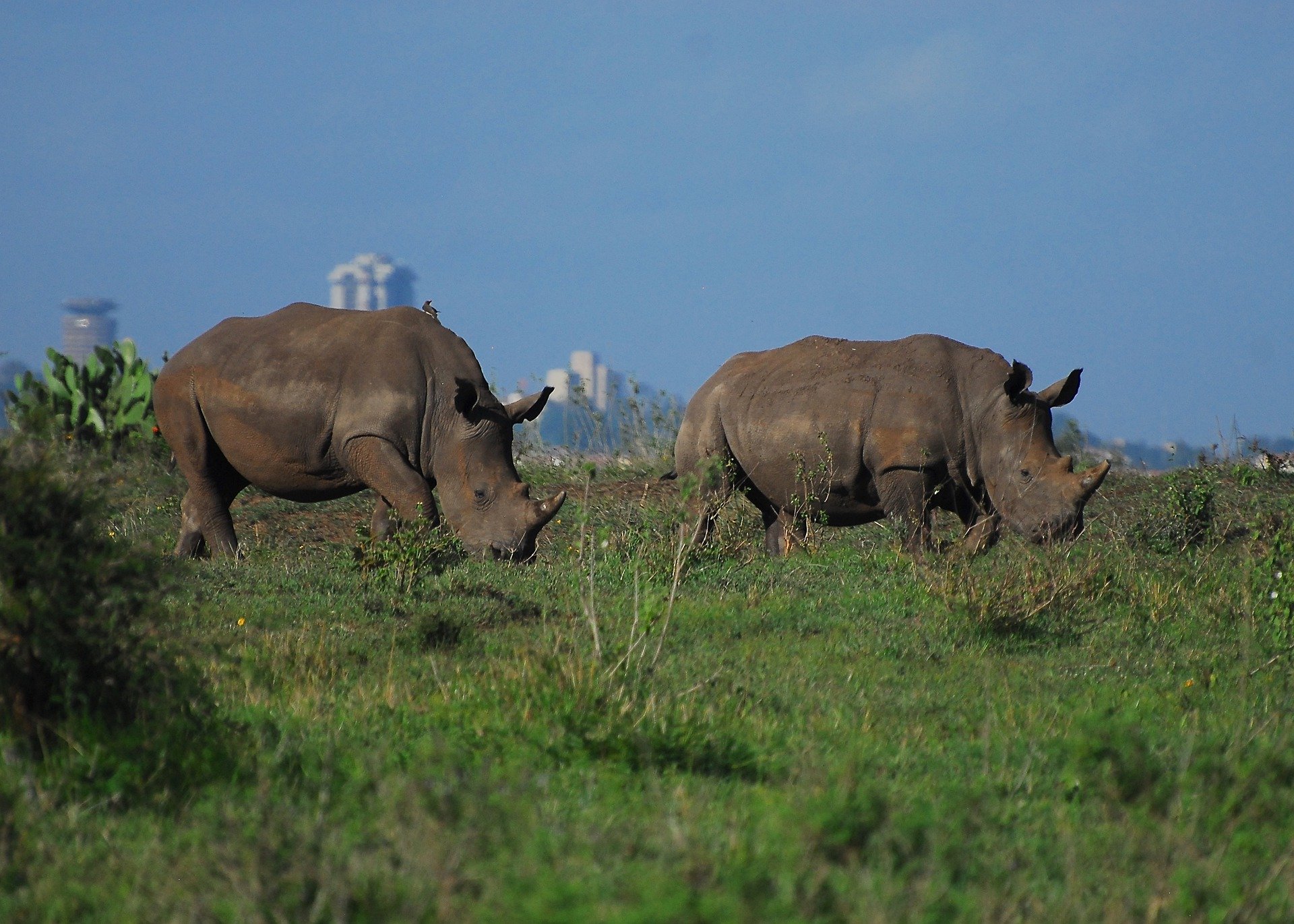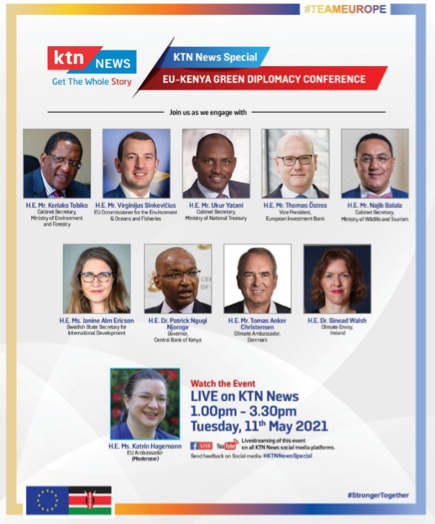Green Deal at the heart of Kenya’s green transition and resilience

Related topics
Climate change, disaster risk reduction and desertification Environment and green economy Biodiversity and ecosystem services Energydate: 09/07/2021
“The EU Green Deal and Climate Diplomacy are very much aligned with Kenya’s priorities. I support that the EU Green Deal is really about making peace with nature.” These were the words of Hon. Keriako Tobiko, Kenya’s Minister for Environment and Forestry, during the EU-Kenya Green Diplomacy Conference on 11-12 May 2021. This high-level conference showed the shared interest of Kenya and the EU in achieving the EU Green Deal.
Kenya, being a nature-based economy, has experienced a dwindling resource base. The wealth of natural capital, biodiversity, wildlife and marine ecosystems are under increasing strain by population growth and the imbalance between economic growth and environmental sustainability objectives, as seen in land degradation, deforestation, wildlife poaching and overfishing. Kenya is highly vulnerable to the changing climate: over 80 % of the country’s landmass is arid and semi-arid, while coastal ecosystems are under pressure from climate-induced acidification and sea-level rise.
Kenya’s consistent leadership in global environmental governance in resolving the triple environmental crisis of climate change, biodiversity loss and pollution include the transition to a green economy, innovating green finance, fighting negative climate change impacts and harnessing its renewable energy potential. As examples, many of you will have heard of Kenya’s ban on single-use plastics, and of course Kenya hosts the global headquarters of UN Environment.
Over the years, the EU and its member states have supported Kenya in conserving nature, reversing biodiversity loss and fighting wildlife trafficking and climate change. In the last five years, EUR 220 million has been invested to enhance the resilience of communities and ecosystems in Kenya’s arid and semi-arid lands to climate change, to support job creation and reduce the carbon footprint in the agricultural sector. EUR 175 million has been invested in renewable energy including the Lake Turkana wind power project in northern Kenya, which is a great example of blending with the EIB, the private sector and various EU Member States. In addition, SWITCH Africa Green, AgriFI and AgriBiz flagships have empowered micro, small and medium enterprises to reduce their carbon and waste footprint, access credit, acquire green infrastructure, create a ready market for green supplies, access the European Union market, conserve biodiversity and reduce the negative impact on lake ecosystems and biodiversity further afield.
The EU has also supported the remarkable wildlife conservation that Kenya achieves through a mixture of public (national park) and private (conservancies) conservation models. The Swahili word for journey, ‘safari’, has been adopted around the world thanks to Kenya’s example. The EU has partnered with the Ministry of Tourism and Wildlife, Kenya Wildlife Service, UNODC, Northern Rangelands Trust, International Fund for Animal Welfare and OIKOS East Africa, among others.
For the next 7 years (2021-2027) our draft Multiannual Indicative Programme (MIP) identifies three priorities: (1) green transition and resilience, including green jobs and green energy, (2) leaving no one behind through renewable energy, and (3) promoting good governance, security and peace.
To achieve a transformative impact, EU Member States and financial institutions including the EIB and KfW have adopted a Team Europe Initiative to support Kenya’s transition to green economy, sustainable climate, smart agriculture, digitalisation, conservation of natural capital and biodiversity, transition to green and sustainable cities and a better energy mix through supporting the production of green hydrogen. Finally, in line with our belief that digitalisation revolutionises the prospects for a sustainable economy, our next seven years will also focus on the enabling and inclusive power of digital; we have also set up a Team Europe Initiative on this topic in Kenya.

